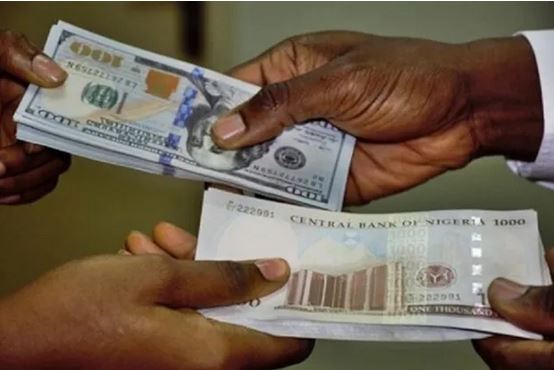The Nigerian naira has sunk to an all-time low of N1,689.88 to the US dollar, marking a significant depreciation of the local currency amid a steep drop in daily foreign exchange (FX) turnover.
This is the lowest exchange rate ever recorded on the official FX market, following a dramatic 77.42% drop in market activity on Tuesday.
According to the FMDQ Securities Exchange Limited, the official closing rate of the naira stood at N1,689.88 per dollar, reflecting a modest 0.5% decline from the previous day’s rate of N1,681.42.
In a stark contrast to previous trading days, the FX market witnessed an unprecedented fall in turnover, with daily activity plummeting to just $106.44 million—down from $471.50 million on Monday.
ATTENTION: Click “HERE” to join our WhatsApp group and receive News updates directly on your WhatsApp!
The data from the FMDQ also revealed that the exchange rate fluctuated within a narrow band, ranging from an intraday high of N1,695 to a low of N1,631, before settling at N1,689.88 at the close of trading.
Despite the official market’s volatility, the parallel market, often referred to as the black market, held steady at N1,740 per dollar, indicating some resilience for the naira outside the formal channels.
Market experts have raised concerns about the widening gap between the official and parallel market rates, which reflects growing uncertainty in the currency market.
The Central Bank of Nigeria (CBN) has expressed caution, with its latest business expectations survey predicting further depreciation of the naira in the short term, particularly over the next three months.
READ ALSO: EFCC Secures 50 Convictions in Naira Racketeering, Dollarization Cases
However, there is a glimmer of hope for the currency’s recovery in the medium to long term, as businesses have shown optimism for a potential appreciation of the naira in the next six months.
On a more positive note, Nigeria’s external reserves have experienced a notable increase, rising to $40.08 billion as of November 7, 2024, up from $33.02 billion at the start of the year.
This marks a 21.4% rise in the country’s reserves, a crucial indicator of the CBN’s ability to intervene in the FX market.
.png)
 9 months ago
98
9 months ago
98









 English (US)
English (US)